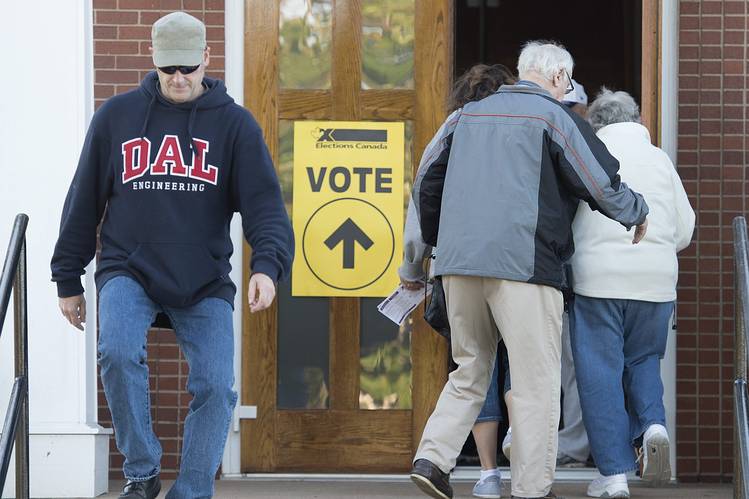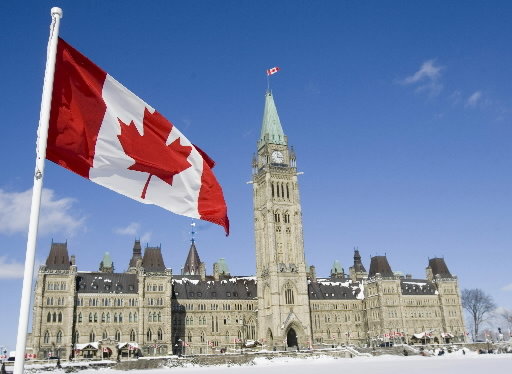Burlington’s Member of Parliament, Karina Gould, will be leading a public consultation on Electoral Reform at the Mainway Recreation centre in the auditorium on Saturday September 10th at 12:30.
She wants to hear what her community has to say about the changes Prime Minister Justin Trudeau promised to deliver in the way of electoral reform. During the election campaign Trudeau said that election was the last that would be run under the First Past the Post (FPTP) process Canada has been using since Confederation. What we choose to use as an election process is now a question the public needs to answer.
 By Jay Fallis
By Jay Fallis
September 1, 2016
BURLINGTON, ON
This is the 3rd of a 3 part series on electoral reform.
I have explained the First Past the Post (FPTP) system of electing the members of the House of Commons that we use today.
I explained Mixed Member Proportional system, or MMP.
In this system, MMP, each voter receives two ballots. One is used to select the local candidate of their choice, while the other is used to select the party of their choice. The ballots selecting the local candidate are tallied up in each riding, and the candidate with the most votes wins. This is the same in our current system, except that constituencies would be bigger.
With MMP, once the candidate for the constituency is decided, the ballots, which indicate party preference, are tallied and the popular support of each party is determined.
The MMP process distributes a percentage of the seats to each political party based on the percentage of the vote they got; the problem for many people is who, which person, would sit in that seat? Would the political party give the seat to one of its members?
In this article I am going to cover two other possible electoral systems. The first is called Alternative Vote (AV); the second is called the ABC approach to electing people to our House of Commons.
Under Alternate Vote, a voter continues to vote for their local candidates. However, instead of selecting a single candidate with an X, voters order each of the candidates 1-2-3 etc., from their most preferred selection to their least preferred.
When first place selections are counted, a candidate with more than 50% of the popular vote wins. If however no candidate receives more than 50%, then the candidate with the least number of votes is eliminated. The ballots that selected the last place candidate are redistributed using the second selections. This process continues until one candidate receives more than 50% support.

Voter turnout has often been low for the past decade; many people feel the current method of electing members to the House of Commons results in an un-representative form of government.
Although this system maintains regional representation as it exists under our current system and allows voters to cast a more accurate ballot, this system has its problems. There is a significant chance it would be advantageous for the Liberal party, as voters on each side of the ideological spectrum have a tendency to select Liberal as their second choice. This could allow Liberal candidates to win in tight ridings more often than not.
Furthermore the method for counting is complex. It would either require days to count by hand or require electronic counting systems. Either method ensures a high probability for error and would be expensive.
Finally, this system would be detrimental for independent candidates and smaller parties. Currently, it is difficult for these candidates and parties to win seats. However, introducing this system would make their advancement even more difficult. This seems unfair when considering that there can be strong independent candidates and viable small parties.
There is another approach – it is referred to as ABC – Alternative Borda Count; developed by French mathematician Charles de Borda.
It is described as easy as ABC (Alternative Borda Count). In this system voters are able to make up to 3 selections: a first, second, and third choice. If voters wish, they can choose to select only a first and second choice, or only a first choice. Each first choice selection is worth 4 points, each second choice selection worth 2 points, and each third choice selection worth 1 point. When the points are tallied and the local candidate with the most points wins.

Members of the House of Commons have been determined by First Past the Post elections since confederation. The current government has determined it is time for a change.
Although this system does not guarantee perfect representation of votes to seats in the legislature it does represent an obvious improvement from Alternative Vote.
The first advantage is that this system is simple when compared to Alternative Vote. The calculation method and ballot can easily be explained to voters. Additionally, counting can be done relatively efficiently by hand and results could be posted on election night without the use of electronic counting.
This system maintains our country’s current regional representation. All ridings would remain as they are. However, in order to win ridings, candidates would require support from approximately 70 to 80% of the riding’s population. This is much higher than Alternative Vote which would often produce winners with just over 50% of support.
As for independent candidates and smaller parties, this system encourages their advancement. If a candidate or party receives few first place selections, but many 2nd and 3rd place selections they still have some opportunity to win. This will not mean the advancement of many, but it would mean that more independents and small party candidates have the opportunity to win.
Finally, this is a system that has the capability to be popular amongst Canadians. Although it has yet to attract the attention of reform advocates, a preliminary study has shown very high support for the system amongst the voting public. The study I refer to is a paper I did while earning my Master’s degree at the University of Toronto.
Not only does it attract those who support reform, it also attracts many who don’t, because it is simple and offers them the ability to vote as they do under the current system (by choosing to make only a first selection).
ABC is a system that meets many different needs and has the potential to bring about positive change to Canada’s political system when compared to Alternative Vote. To learn more about the ABC system or sign the petition you can go to: abcvote.ca.
I have given readers a quick overview of the different systems that are being considered. The government is now asking Canadians which system they would like to see. It’s an important decision – make a point of getting out to the public meetings and do some research.
Links:
CBC ran a very interesting piece – worth reading.
 Jay Fallis is a graduate of the University of Toronto where he earned a Master’s Degree that focused on electoral reform.
Jay Fallis is a graduate of the University of Toronto where he earned a Master’s Degree that focused on electoral reform.
He writes a column for a daily newspaper in Ontario, the Orillia Packet and Times,
















Hey Everyone,
Thanks again for reading and the comments!
To John: I might say that the will of the people in the Ontario referendum was not accurately reflected. In 2007, the Ontario Government did not adequately fund the education campaign to ensure that all voters knew what they were voting on. While evidence suggested that MMP was seen as more acceptable, the more voters knew about it, few did. This is further evidenced by the almost non-existent media coverage of the MMP system and referendum in the weeks leading up to the vote.
To Video Spirit: In regards to your comment on strategic voting, I think it is important to consider that during the Federal Committee on Electoral Reform, we have heard almost every expert witness say that no matter the system (AV, MMP, List PR, STV, ABC, etc.) strategic voting will exist. Even AV, where a voter still has to consider the likely placement of candidates to increase the value of their vote, has elements of strategic voting. That being said, I would argue that AV and ABC reduce strategic voting.
Under ABC a vote for another party would to some extent counter the first, however, voters do not have to select a second or third candidate if they do not wish. Furthermore, a vote to contradict the first selection affirms the true support for the second or third party selected. Finally, a counteracting vote is a small price to pay for ensuring that a party’s place on the ideological spectrum does not affect their success.
To Ray Rivers: Absolutely, there are no examples of ABC anywhere in the world (although Borda Count in its truest form is used in Nauru, Slovenia, and for Presidential elections in Kiribati).
In regards to complexity in counting, I would posit, having witnessed ballot counting first hand, that simply recording the collective first, second, third choices on a sheet multiplying them by their worth and adding them together would certainly be possible without technology. It would be more time consuming, but it would still be manageable unlike all other ranked ballot systems being proposed.
I would argue that 70-80% is certainly a range where most results would likely fit. Obviously there would be exceptions, although from the preliminary study I conducted, in a highly divided riding, the winner received 73.5%. I would certainly say this might fluctuate in Quebec (many with around 65% results) although this might be balanced with results in the Maritimes and Alberta, where even under FPTP, the results are in the 70s or low 80s.
Finally, in regards to the Liberals having the advantage because other parties have not moved to the centre: I would argue that this carries with it some negative connotations as well. This limits other parties from distinguishing themselves apart and from championing legislation that one side of the political spectrum believes in, but is not necessarily popular for voters as a whole. Some of this form of legislation have arguably become the most popular among Canadians, even though at the time it was rejected by the majority.
To Stephen White: Having witnessed much of the ERRE Committee proceedings, I would not say the Liberals favour Proportional Representation. I honestly believe that their party is very divided on this issue.
Again thanks everyone for reading and commenting!
Best,
Jay
Thanks Jay- I wasn’t referring to the referendum in Ontario however, your reasoning makes a strong case for not considering electoral reform on a municipal, provincial or national scale.
The strongest evidence in the case of the Ontario referendum is the vote rejecting it. That was the will of the people,sometimes they understand far more than given credit for.
I’m not convinced that any of the alternatives to the current electoral system are significantly better than what is now in place.
Voting should be a reflection of a citizen’s political expression not an exercise in forming strategic alliances. Look at countries where preferential ballots are in place and what you see is political instability, fractious alliances and obscure political parties that are given a disproportionate amount of media coverage to espouse their extreme or bizarre political ideologies. Just look at the list of political parties posted above by “Lonely Taxpayer” and ask yourself whether or not you want representatives from these groups either in the Parliament and holding the balance of power. The day that the creation of a government hinges on which way representatives from the Rhinoceros Party, the Bridge Party or the Christian Heritage Party vote will be worrisome for both our Parliament and political instability.
The Liberal government is obviously fixated on proportional representation and appear blind to its ramifications and consequences. I would be more impressed if they would concentrate on ways of engaging citizens more directly in providing direct input into the public policies between elections rather than ill-conceived structural reforms the consequences of which have not been carefully thought out.
I too would like to thank Mr. Fallis for extending the discussion about how we could better choose the people who govern us.
While It is true that the preferential ballot (his Alternative Voting) will require some level of computerization, so would the ABC system he is promoting. Assigning weights, scoring and tabulating a weighed system is a hornet’s nest of complexity, even assuming that there is broad consensus on the value of the weights (eg. 4, 2, 1 or 6, 4, 2). I might add that the probability of unexpected outcomes would be higher with such a system.
Mr Fallis argues that winning candidates would likely have higher support under ABC (80%) – in fact it is possible that there may be no one who receives more than 50% of the intended popular support at the end of the count. I don’t see any greater chance for third parties to get the prize than under a preferential ballot..
The writer claims that Liberals currently appear to be advantaged by preferential balloting. This is due to the fact that the Liberal party typically represents a more broadly positioned policy platform.. That is a consequence of being perceived as more middle-of-the-road and thus preferred as a second option to the other parties. In that regard other parties have only themselves to blame for not more often crafting policies which better reflect broad public support as Mr. Mulroney, for example, had done in obtaining his majorities.
Finally no examples of where this ABC model has been tested or is currently being used is provided. Personally I support a system that will clearly ensure that those elected have received the broadest public support as a first, second or third choice – meaning that our government should be one which most Canadian voters prefer.
Following is the current list of Federal Parties for Canada:
Alliance of the North
Animal Alliance Environment Voters Party of Canada
Bloc Québécois
Canada Party
Canadian Action Party
Christian Heritage Party of Canada
Communist Party of Canada
Conservative Party of Canada (no official leader)
Democratic Advancement Party of Canada
Forces et Démocratie
Green Party of Canada
Liberal Party of Canada
Libertarian Party of Canada
Marijuana Party
Marxist-Leninist Party of Canada
New Democratic Party (no official leader)
Pirate Party of Canada
Progressive Canadian Party
Rhinoceros Party
Seniors Party of Canada
The Bridge Party of Canada
For true representation, all 21 parties should be listed on the ballot and the voter rank them 1-21 in order of preference. Note – the greater majority of the parties are led by men.
==========================================================================
Canada is a LARGE diverse, bilingual and multicultural nation. Having each pocket region vote for their own special interest or faith-based party may not bring unity to the country. In fact it may harbour more separatist parties.
==========================================================================
Who will watch these candidates? In the old days newspapers did the dirty work but they’re slimming down and closing. With today’s social media – who will regulate the negative campaign advertisements and lies? No one.
===========================================================================
Before our electoral process gets changed, all the pitfalls need to be presented and safeguards implemented. Canada doesn’t have a recall process, and prime ministers are not restricted to just two terms.
Go ahead and change the system if that’s what we really want.
Congratulations and Thank-you to Mr. Fallis and staff at the Gazette for an interesting series.
The of the third segment implies that we do not currently enjoy the will of the people. Is the the fault of the voters, the process or “OUR ELECTED REPRESENTATIVES?” Perhaps maybe even our System of governance?
It is Our Government, but why do we have to pay so much for it?
No mention of Recall, Term Limits or enforcement of Conflict of interest?
The most troubling part of the title is the last; “…be part of the process of getting it right.” Is this to say that the committees and “town halls” being trotted around the country presently are our only chance?
In my opinion the current system is rather Elitist, Patrician and perhaps over time has become Entitled.
As my History Professor would have said, “So what?”
I can’t support any voting system where strategic voting is a factor. I want to be able to vote for the candidate I feel most represents me without having to worry about whether or not I’m helping a candidate I dislike win by not voting for the stronger opposition. Your proposed ABC method has your second and third choices mean less than your first choice. That still means strategic voting is something that needs to be considered. With Alternative vote, you NEVER have to worry that you are helping the opponent win and are free to vote your conscience, because you can always put the stronger candidate as your second or third choice.
I think I like the ABC method you describe. It gives voters choice to vote for one to three candidates if they choose, simplifies the counting and distribution of points by candidate and allows smaller party candidates a chance. I would think this system would work well in municipal elections as well, especially when you have many candidates vying for one ward seat.
Thanks for the articles Jay and Pepper.
“Electoral reform is complex – but it is vital if we are to make the will of the people the law of the land.”
Is electoral reform the will of the people ?
I have seen nothing to indicate that it is.
Ontario has given municipalities the option to consider ranked ballots, sure hope we consider the will of the people before that choice is considered.